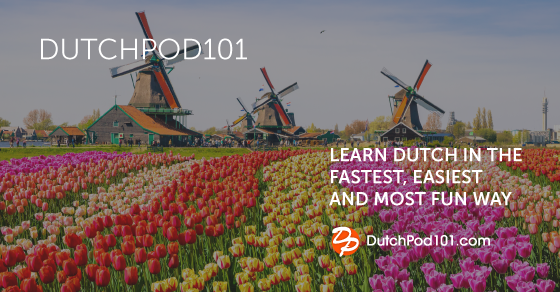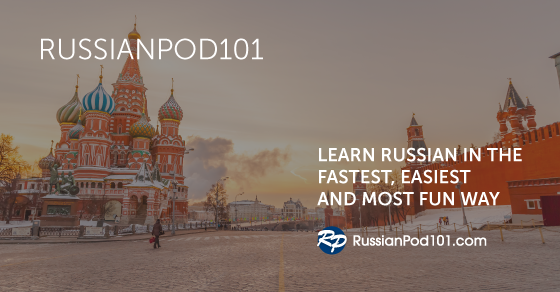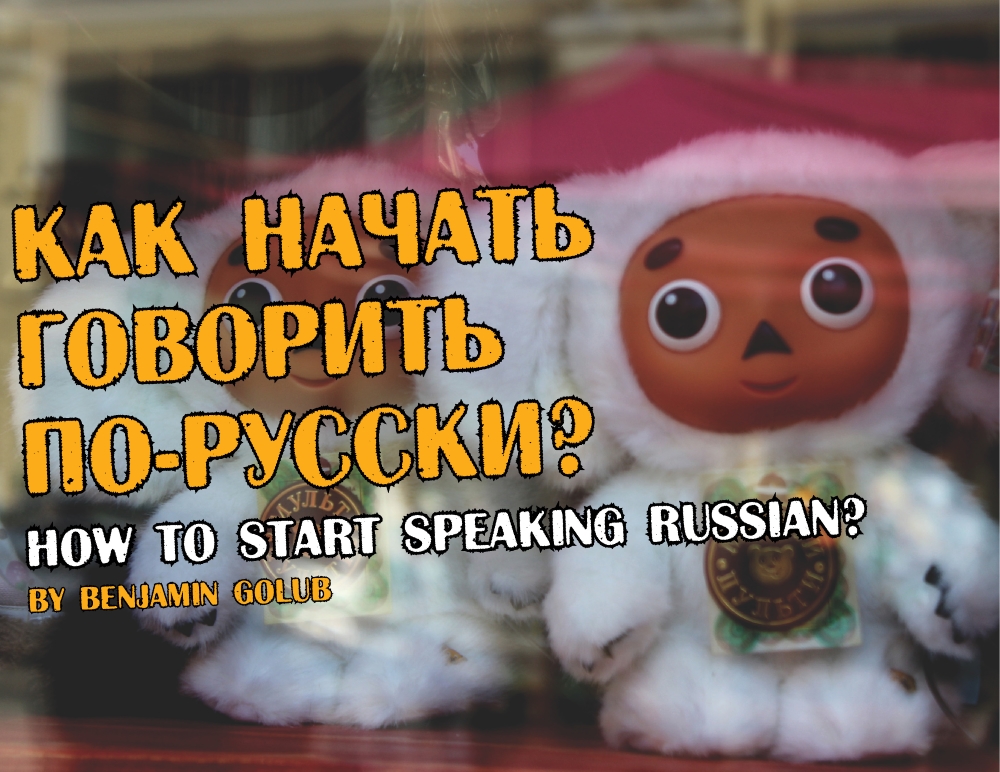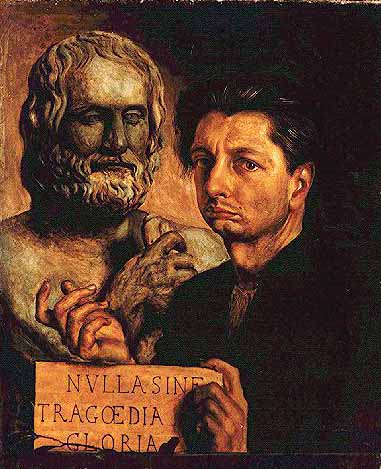بلاگ
-

Free Dutch Gifts of the Month – August 2025
Access your free language gifts right now before they expire. First up, 30 antonyms you must know. Want to double your vocabulary? Learn how to say young and old, hot and cold, and much more. You’ll pick up over 30 words with this vocab bonus. Second, travel like a boss PDF cheat sheet. If you’re learning the language but don’t know these basic travel phrases inside, what have you been doing? Download this bonus cheat sheet right now to fix that. Third, 20 small talk phrases that make you sound fluent. Chatting with native speakers would be easy if you bothered to learn these useful phrases. So access this one minute small talk phrases lesson now. Fourth, 10 phrases to amaze native speakers. This lesson teaches you even more phrases that make you sound fluent and will impress native speakers. What are they? You’ll find out inside. And last but not least, tired of apps that only teach you random words? Want an app that teaches you the language through everyday conversations? With innovative language learning, you’re exposed to real conversations between real native speakers. And then get everything slowed down and explained so you can learn the language fast. Download it for free on Android, iPhone, and iPad. To get your free gifts of the month, click the link in the description below and download them now before they expire. -

Free Russian Gifts of the Month – August 2025
Access your free language gifts right now before they expire. First up, 30 antonyms you must know. Want to double your vocabulary? Learn how to say young and old, hot and cold, and much more. You’ll pick up over 30 words with this vocab bonus. Second, travel like a boss PDF cheat sheet. If you’re learning the language but don’t know these basic travel phrases inside, what have you been doing? Download this bonus cheat sheet right now to fix that. Third, 20 small talk phrases that make you sound fluent. Chatting with native speakers would be easy if you bothered to learn these useful phrases. So access this one minute small talk phrases lesson now. Fourth, 10 phrases to amaze native speakers. This lesson teaches you even more phrases that make you sound fluent and will impress native speakers. What are they? You’ll find out inside. And last but not least, tired of apps that only teach you random words? Want an app that teaches you the language through everyday conversations? With innovative language learning, you’re exposed to real conversations between real native speakers. And then get everything slowed down and explained so you can learn the language fast. Download it for free on Android, iPhone, and iPad. To get your free gifts of the month, click the link in the description below and download them now before they expire. -

Core Words: How to Say “Antibiotic,” “Sick,” and More!
Hi everybody, my name is Thomas. Welcome to the 2000 Core Dutch Words and Phrases video series! Each lesson will help you learn new words, practice, and review what you’ve learned. Ok! Let’s get started! First is… WORD 1 (NORMAL SPEED) intraveneus (NORMAL SPEED) “intravenous” (NORMAL SPEED) intraveneus (SLOW) intraveneus (NORMAL SPEED) “intravenous” (NORMAL SPEED) De verpleegster begon bij de patiënt met het intraveneus toedienen van vloeistoffen. (NORMAL SPEED) “The nurse started an intravenous line (IV) to give the patient fluids.” (SLOW) De verpleegster begon bij de patiënt met het intraveneus toedienen van vloeistoffen. WORD 2 (NORMAL SPEED) dokterspraktijk (NORMAL SPEED) “doctor’s office” (NORMAL SPEED) dokterspraktijk (SLOW) dokterspraktijk (NORMAL SPEED) “doctor’s office” (NORMAL SPEED) De dokterspraktijk is vlakbij de bibliotheek. (NORMAL SPEED) “The doctor’s office is near the library.” (SLOW) De dokterspraktijk is vlakbij de bibliotheek. WORD 3 (NORMAL SPEED) thermometer (NORMAL SPEED) “thermometer” (NORMAL SPEED) thermometer (SLOW) thermometer (NORMAL SPEED) “thermometer” (NORMAL SPEED) temperatuur op een thermometer (NORMAL SPEED) “temperature on a thermometer” (SLOW) temperatuur op een thermometer WORD 4 (NORMAL SPEED) injectienaald (NORMAL SPEED) “needle” (NORMAL SPEED) injectienaald (SLOW) injectienaald (NORMAL SPEED) “needle” (NORMAL SPEED) grote injectienaald (NORMAL SPEED) “large needle” (SLOW) grote injectienaald WORD 5 (NORMAL SPEED) een bad nemen (NORMAL SPEED) “take a bath” (NORMAL SPEED) een bad nemen (SLOW) een bad nemen (NORMAL SPEED) “take a bath” (NORMAL SPEED) Ik neem twee keer per dag een bad. (NORMAL SPEED) “I take a bath twice a day.” (SLOW) Ik neem twee keer per dag een bad. WORD 6 (NORMAL SPEED) ziek (NORMAL SPEED) “sick” (NORMAL SPEED) ziek (SLOW) ziek (NORMAL SPEED) “sick” (NORMAL SPEED) Ik voel me sinds dinsdag ziek. (NORMAL SPEED) “I’ve felt sick since Tuesday.” (SLOW) Ik voel me sinds dinsdag ziek. WORD 7 (NORMAL SPEED) hoestdrank (NORMAL SPEED) “cough syrup” (NORMAL SPEED) hoestdrank (SLOW) hoestdrank (NORMAL SPEED) “cough syrup” (NORMAL SPEED) De dokter schreef haar een hoestdrank voor. (NORMAL SPEED) “The doctor prescribed her a cough syrup.” (SLOW) De dokter schreef haar een hoestdrank voor. WORD 8 (NORMAL SPEED) aspirine (NORMAL SPEED) “aspirin” (NORMAL SPEED) aspirine (SLOW) aspirine (NORMAL SPEED) “aspirin” (NORMAL SPEED) Ik heb een potje aspirine. (NORMAL SPEED) “I have a bottle of aspirin.” (SLOW) Ik heb een potje aspirine. WORD 9 (NORMAL SPEED) antibiotica (NORMAL SPEED) “antibiotic” (NORMAL SPEED) antibiotica (SLOW) antibiotica (NORMAL SPEED) “antibiotic” (NORMAL SPEED) Je hebt antibiotica nodig. (NORMAL SPEED) “You need antibiotics.” (SLOW) Je hebt antibiotica nodig. WORD 10 (NORMAL SPEED) vaccin (NORMAL SPEED) “vaccine” (NORMAL SPEED) vaccin (SLOW) vaccin (NORMAL SPEED) “vaccine” (NORMAL SPEED) Ik heb onlangs een injectie met het H1N1-vaccin gekregen. (NORMAL SPEED) “I recently got an injection of the H1N1 vaccine.” (SLOW) Ik heb onlangs een injectie met het H1N1-vaccin gekregen. PRACTICE/REVIEW Let’s review. Respond to the prompts by speaking aloud. First, you will hear a word or phrase in English. Respond in Dutch, then repeat after me, focusing on pronunciation. Ready? (Do you remember how to say “intravenous?” Review 1) (3) (2) (1) intraveneus (1) intraveneus (And how to say “doctor’s office?” Review 2) (3) (2) (1) dokterspraktijk (1) dokterspraktijk (What about “thermometer?” Review 3) (3) (2) (1) thermometer (1) thermometer (Do you remember how to say “needle?” Review 4) (3) (2) (1) injectienaald (1) injectienaald (Let’s try “take a bath!” Review 5) (3) (2) (1) een bad nemen (1) een bad nemen (What about “sick?” Review 6) (3) (2) (1) ziek (1) ziek (Now, let’s see if you remember how to say “cough syrup!” Review 7) (3) (2) (1) hoestdrank (1) hoestdrank (Another one! What about “aspirin?” Review 8) (3) (2) (1) aspirine (1) aspirine (Do you remember how to say “antibiotic?” Review 9) (3) (2) (1) antibiotica (1) antibiotica (And finally, do you remember how to say “vaccine?” Review 10) (3) (2) (1) vaccin (1) vaccin Well done! See you next time! Tot ziens. -

Sharing a Song – RussianPod101
INTRODUCTION Eric: Must-Know Russian Social Media Phrases Season 1. Lesson 4 – Sharing a Song. Eric: Hi everyone, I’m Eric. Elena: And I’m Elena. Eric: In this lesson, you’ll learn how to post and leave comments in Russian about sharing music or videos. Марина shares a song she just heard at a party, posts a video of it, and leaves this comment- Elena: Рекомендую! Eric: Meaning “My recommendation!” Listen to a reading of the post and the comments that follow. Lesson conversation
(clicking sound) Марина: Рекомендую! (clicking sound) Оксана: Классная песня! Ира: Мне тоже нравится. Паша: А по-моему не очень. Юра: И как такое может кому-то нравиться. Eric: Listen again with the English translation. (clicking sound) Марина: Рекомендую! Eric: “My recommendation!” (clicking sound) Оксана: Классная песня! Eric: “Cool song!” Ира: Мне тоже нравится. Eric: “I like it too.” Паша: А по-моему не очень. Eric: “In my opinion, it’s not so good.” Юра: И как такое может кому-то нравиться. Eric: “I can’t believe someone likes it!” POST Eric: Listen to Марина (Marina)’s post again. Elena: Рекомендую! Eric: “My recommendation!” Elena: (SLOW) Рекомендую! (Regular) Рекомендую! Eric: Let’s take a look at the expression meaning “My recommendation!” Elena: Рекомендую! (Rekamenduyu!) Eric: Literally this word can be translated as “I recommend,” although it only has the conjugated verb meaning “recommend.” Russian verbs are conjugated based on person and number. Therefore, in daily conversation, you can omit pronouns like this one, as it’s clear to Russians who the verb is referring to. Use this pattern when you want to give recommendations to your friends. Listen again. “My recommendation!” is… Elena: (SLOW) Рекомендую! (Rekamenduyu!) (REGULAR) Рекомендую! (Rekamenduyu!) COMMENTS Eric: In response, Марина (Marina)’s friends leave some comments. Eric: Her high school friend, Оксана (Oksana), uses an expression meaning “Cool song!” Elena: (SLOW) Классная песня! (REGULAR) Классная песня! [Pause] Elena: Классная песня! Eric: Use this expression to be funny and to show your approval of and enthusiasm for a song. Eric: Her neighbor, Ира (Ira), uses an expression meaning “I like it too.” Elena: (SLOW) Мне тоже нравится. (REGULAR) Мне тоже нравится. [Pause] Elena: Мне тоже нравится. Eric: Use this expression to say that you also like something. Eric: Her boyfriend, Pasha, uses an expression meaning “In my opinion, it’s not so good.” Elena: (SLOW) А по-моему не очень. (REGULAR) А по-моему не очень. [Pause] Elena: А по-моему не очень. Eric: Use this expression to express that you don’t really like something. Eric: Pasha’s nephew, Юра (Yura), uses an expression meaning “I can’t believe someone likes it!” Elena: (SLOW) И как такое может кому-то нравиться. (REGULAR) И как такое может кому-то нравиться. [Pause] Elena: И как такое может кому-то нравиться. Eric: Use this expression to show your dislike and wonder how someone can like something. Outro
Eric: Okay, that’s all for this lesson. If a friend posted something about music or videos, which phrase would you use? Leave a comment letting us know, and we’ll see you next time! Elena: Пока (Paka) -

Certified Crazy: The Curious Case of the Madman License in Gubbio
If you find yourself in the hilltop town of Gubbio, in the heart of Umbria, you might stumble upon one of Italy’s most bizarre and delightful traditions: the patente di matto, or “madman license.” This whimsical certificate is given to visitors who follow a playful ritual—and no, it doesn’t require any psychiatric assessment. Let’s dive …
The post Certified Crazy: The Curious Case of the Madman License in Gubbio appeared first on Sos Italian – Learn Italian online.
-

Как начать говорить по-русски? – Русский Подкаст
Шон
Слушаю русский подкаст, чтобы изучаю новые слова и предложения. Большое спасибо за работу!
Sam
Я просто хотел сказать огромное спасибо. Сначала я ничего не мог понять. Я использовал твой подкасты как мост, и сейчас я могу понимать контент для носителей языка. Я мог бы сдался, если бы не нашёл твои подкасты))
Kobi
Simply the best Russian learning podcast, as it’s 100% in Russian, with a lot of redundant explanations (in the best sense), collect the basics somewhere, and use this to push yourself from Beginner level comprehension, to a communicative intermediate learner.
Barbara
Спасибо большое за то, что Вы делаете для любители русского языка и русской культуры.
Bettina
la meilleure forme d’apprentissage de tout le web!
Neeka
What a wonderful podcast, clear pronunciation, at a medium yet natural pace, Tatiana introduces new words by describing them in Russian instead of translating them into English. I love this Russian podcast, its all in Russian!
Leila
Я большой фанат не только вашего замечательного подкаста, но и всего, что вы делаете, чтобы помогать изучающих и преподающим русский язык делать это еще лучше :).
Kamal
Все видео и подкасты мне нравятся. Удачи!
Верика
Дорогая Татьяна! Мне очень нравится, как ты объяснишь трудные и длинные русские слова.
James
Большое спасибо за твою работу. Мой русский язык улучшается каждый день. До твоего подкаста, я не мог слушать русский язык очень хорошо. Когда я говорю с людьми, нам было нужно разговаривать медленно, теперь я понимаю моих друзей хорошо.
-

How to Give Your Name in Turkish – Part 1
Hello! Merhaba! What’s up everyone? Welcome to another Turkish whiteboard lessons. Today we have a fun topic. We will talk about how to give your name in Turkish. Are you guys ready? Let’s get started. First, let’s look at our dialogue. Merhaba, Ben Demir Dilber. Memnun oldum. Ben de memnun oldum. Ben Defne Deniz Now let’s look at the English translation. Hello, I’m Demir Dilber. Pleased to meet you. I’m also pleased to meet you. I’m Defne Deniz Do you see the structure here? Let’s look at the structure. Let’s see our sentence pattern. Ben [Name] Ben Seda, for example. Or you can say, Adım [Name]. Again, same structure. Ben [Name] Adım [Name] Ben Seda Adım Seda Easy, right? Okay, let’s see what we have here. The grammar. Okay, let’s see the grammar. As you can see, to be verb often omitted in Turkish, which makes it very much easier. Ben means I. As you can see, you don’t say I am. You just say I. Ben Ben Seda Or let’s look at this one. Adım This means my name. My name As you can see, we don’t have my name is. We don’t have M is are. We don’t have the to be. Ben Adım That’s it. Just one word. If you learn that one word, you can say your name in Turkish. Okay, let’s see what we have next. We have the vocabulary. Let’s see our Turkish vocabulary first. Merhaba This means hello. And I want to say something. Normally, we don’t read the H in merhaba. We say Merhaba Let’s see the next one Memnun oldum Pleased to meet you. Let’s see the next one. Ben de memnun oldum. I’m also pleased to meet you. Okay? Okay, let’s see the next part. Let’s see our linguistic insight. If you want to say this, pleased to meet you, in a full proper form, you would say Tanıştığımıza memnun oldum. Okay? I’m pleased to meet you. But literally, tanıştığımıza means that we met. I’m pleased that we met. How this goes? Tanışmak. Okay? This is to meet. And when you add tanıştığımıza, this is the suffix. A little bit complicated for now. But this makes the sentence that we met. So, memnun oldum. I am pleased that we met. Okay? So, you know the formal structure as well. -

Let’s Discover Venice
Venice, or Venezia, is one of the most unique and romantic cities in the world, a place where history, culture, and stunning architecture meet the beauty of the canals. For students of Italian who haven’t visited yet, Venice offers an opportunity to explore not just its famous landmarks but also its hidden treasures. In this …
The post Let’s Discover Venice appeared first on Sos Italian – Learn Italian online.
-

Free Russian Gifts of the Month – July 2025
Access your free language gifts right now before they expire. First up, the 50 Most Common Verbs Worksheet. If you’re still blanking on simple verbs like “to go,” “to want,” or “to have” — this worksheet is for you. You’ll master the most-used verbs with the exercises inside. Second, the Summer Season Writing Workbook. With this printable PDF, you’ll learn all the must-know Summer words and phrases. And, you’ll be able to practice writing them out as well. Download it for free right now. Third, the Essential Summer Vocabulary List. If you can’t say “Summer is hot” in your target language…. That’s a problem. That’s why this 1-minute lesson will teach you the must-know summer words. Fourth, Want to Speak Like a Native Speaker? Or at least come close? Of course you do. And this 1-minute lesson reveals all the high-level learning strategies… that will get you speaking with confidence. And last but not least, Most language apps teach you the slow way…by just teaching you words…but this one teaches you faster through actual everyday conversations. With Innovative Language Learning, you listen to real conversations between real native speakers and then get everything explained… so you can pick up the language fast. Download it for free on Android, iPhone, and iPad To get your free gifts of the month, click the link in the description below. And download them now—before they expire! -

Crea il tuo autoritratto. Sei felice? (Create your self-portrait. Are you happy?) – Cyber Italian Blog

Il famoso Giorgio de Chirico ha dipinto un autoritratto in cui si mostra vicino al busto di Euripide (un drammaturgo greco vissuto fra il 485 e 407 a.C.)
La scritta in latino nel quadro dice: “non c’è nessuna gloria senza tragedia”.
De Chirico nel dipinto non sembra essere molto felice.
Se tu adesso ti facessi un autoritratto come sarebbe? Sei felice?The famous Giorgio de Chirico painted a self-portrait in which he appears next to the bust of Euripides (a Greek playwright who lived between 485 and 407 BC).
The Latin inscription on the painting reads: “There is no glory without tragedy.”
De Chirico doesn’t look particularly happy in the portrait.
If you were to paint a self-portrait right now, what would it look like? Are you happy?To practice Italian this week we invite you to read and test..
PRACTICE HERE: Italian/English VersionPicture source: courtesy of collector (private collection)